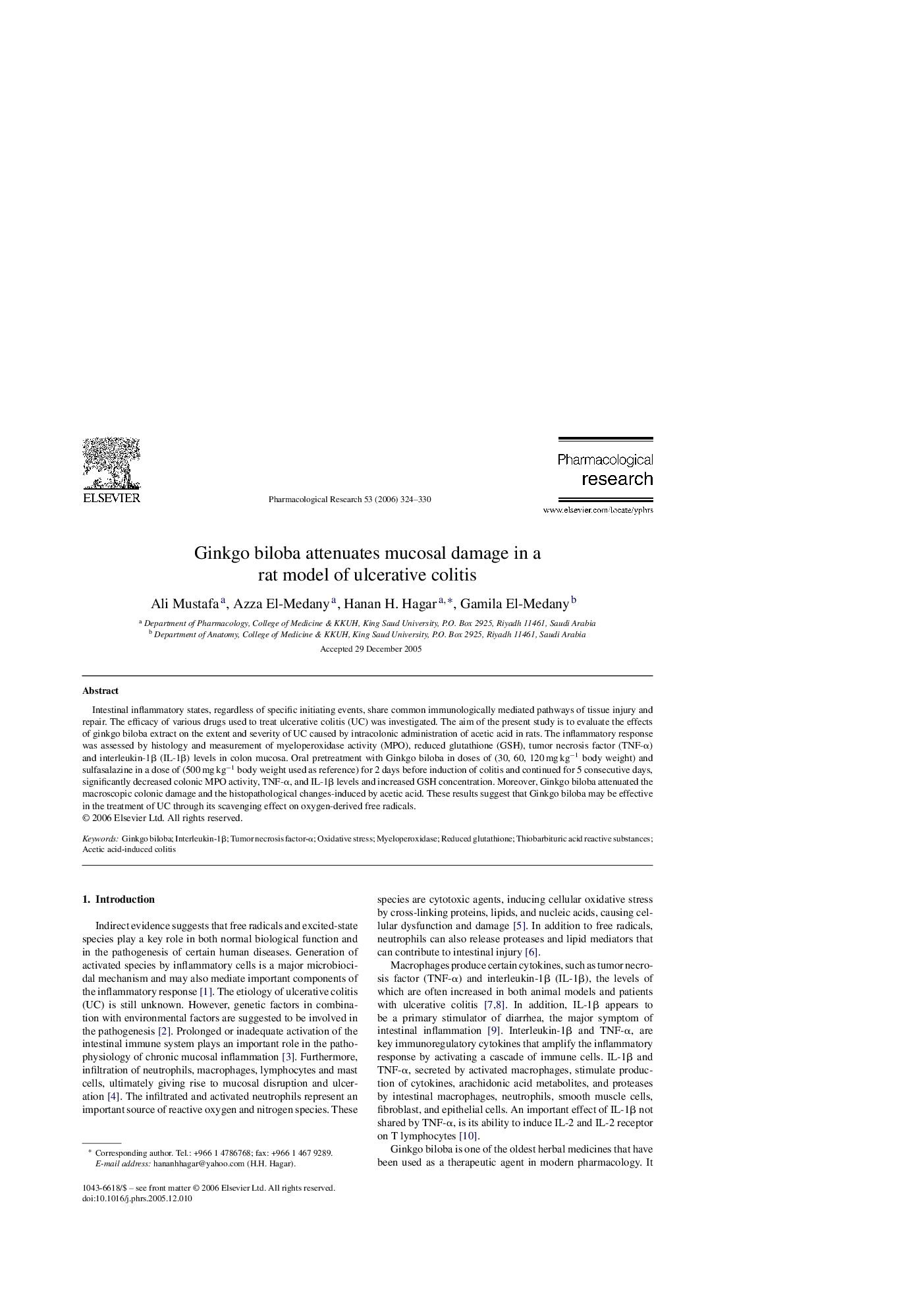| Article ID | Journal | Published Year | Pages | File Type |
|---|---|---|---|---|
| 2562681 | Pharmacological Research | 2006 | 7 Pages |
Abstract
Intestinal inflammatory states, regardless of specific initiating events, share common immunologically mediated pathways of tissue injury and repair. The efficacy of various drugs used to treat ulcerative colitis (UC) was investigated. The aim of the present study is to evaluate the effects of ginkgo biloba extract on the extent and severity of UC caused by intracolonic administration of acetic acid in rats. The inflammatory response was assessed by histology and measurement of myeloperoxidase activity (MPO), reduced glutathione (GSH), tumor necrosis factor (TNF-α) and interleukin-1β (IL-1β) levels in colon mucosa. Oral pretreatment with Ginkgo biloba in doses of (30, 60, 120 mg kgâ1 body weight) and sulfasalazine in a dose of (500 mg kgâ1 body weight used as reference) for 2 days before induction of colitis and continued for 5 consecutive days, significantly decreased colonic MPO activity, TNF-α, and IL-1β levels and increased GSH concentration. Moreover, Ginkgo biloba attenuated the macroscopic colonic damage and the histopathological changes-induced by acetic acid. These results suggest that Ginkgo biloba may be effective in the treatment of UC through its scavenging effect on oxygen-derived free radicals.
Keywords
Related Topics
Health Sciences
Pharmacology, Toxicology and Pharmaceutical Science
Pharmacology
Authors
Ali Mustafa, Azza El-Medany, Hanan H. Hagar, Gamila El-Medany,
